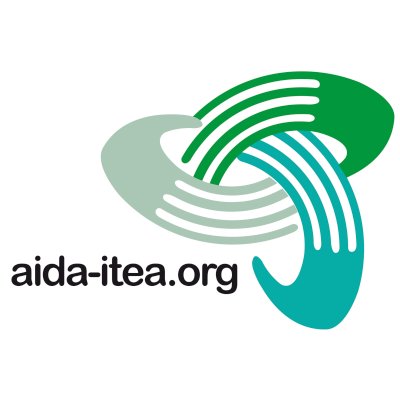Location
La Asociación Interprofesional para el Desarrollo Agrario (AIDA) es una asociación sin ánimo de lucro, abierta a todos los profesionales del sector técnico, social y económico agrario. La Asociación no persigue fines lucrativos ni políticos, sino de interés social y técnico en el campo agrario.
La Asociación se creó el 5 de octubre de 1967, aunque no es hasta 1973 cuando adopta el nombre de Asociación Interprofesional para el Desarrollo Agrario. En su origen era la Asociación de Técnicos Diplomados por el Centro de Investigación y Desarrollo Agrario del Ebro (CIDADE). Nace con la finalidad de crear un medio para facilitar la difusión y el intercambio de conocimientos, para dar ayuda profesional entre los asociados, así como contribuir al avance científico y técnico del sector agrario.
En la actualidad se mantienen estos fines, consiguiendo esta difusión a través de la organización periódica de Jornadas, Jornadas sobre Producción Animal los años impares y Jornadas sobre Producción Vegetal los años pares, donde se presentan comunicaciones y los profesionales comparten sus conocimientos e inquietudes.
AIDA edita la revista ITEA-Información Técnica Económica Agraria, que aparece indexada en las bases de datos de revistas científicas más importantes (SCI Expanded, Journal Citation Reports/Science Editions, ICYT, CABI y Scopus) y que en la actualidad se encuentra accesible en open-access.
En la actualidad la Asociación cuenta con unos 300 socios
Fines de la asociación
La Asociación persigue los siguientes fines:
- Proporcionar a los asociados toda la información y ayuda profesional que puedan serles útiles.
- La publicación de una revista periódica denominada ITEA-Información Técnica Económica Agraria.
- Facilitar a los asociados los contactos entre sí y con las diferentes instituciones a las que pertenecen.
- Organizar periódicamente unas Jornadas de Estudio, así como la coordinación o participación en conferencias, coloquios, seminarios, mesas redondas y demás manifestaciones que puedan interesar a los asociados para perfeccionar su formación profesional.
- Orientar, desarrollar y apoyar toda clase de iniciativas que puedan ayudar al desarrollo técnico, económico y social agrario.
- Cualesquiera otros fines lícitos que puedan considerarse de interés para los asociados dentro del espíritu que inspira la constitución de esta Asociación.
Members:
Resources
Displaying 1 - 5 of 14Influence of diet composition on fatty acid composition and lipogenic enzymes genetic expression of Iberian pig tissues
Animal tissue composition is determinant in the quality of animal products and is influenced by several factors including diet, genetic type, age and sex. Diet effect on Iberian pig's tissue composition is a relevant issue with productive and economic implications, not well understood to date. In this work we evaluated the effect of the diet fatty acid composition of fattening Iberian pigs, with respect to different tissues FA composition and transcription of three key genes coding for lipid metabolism enzymes (SCD, ME1 and FASN).
Growth curves in two lines (Santiaguesa vs Barcina) from Celta pig breed
The Celta pig breed was the most important in Galicia (northwest of Spain) until beginning of the 20th century, suffering from this moment a continuous decrease caused by the introduction of improved breeds and their crosses. For this study 19 Celta pig breed from Santiaguesa genotype and 15 from Carballina genotype were used. Animals were weighted once at month during 12 months. To Santiaguesa genotype not significant differences (P>0.05) were observed until 198 days but it has been detected significant differences (P0.05) in any growth curve between gender.
Effect of the farm geographical location on the fertility after artificial insemination in Rasa Aragonesa ewes belonging to U.P.R.A. selection scheme
The aim of this study was to analyze the effect of the farm geographical location and of the theoretical time distance between the farm and the insemination center on the fertility after cervical AI. Data from 18,528 AI in Rasa Aragonesa ewes belonging to the UPRA selection scheme were recorded. An average fertility of 54.3% was observed, with significant differences among the three provinces studied (Huesca: 58.6%; Zaragoza: 55.6%; Teruel: 44.3%; p
Effects of dietary lysine intake on performance, organ weights and carcass characteristics of post-weaned Iberian piglets
The present work is part of an experimental program aimed to establish the dietary lysine (Lys) requirements of post-weaned Iberian piglets. For this purpose, we used 66 castrated male Iberian piglets of Silvela strain, with approximately 10 kg bodyweight and 40 days of age. Piglets were fed one of six experimental diets differing in their dietary Lys content. L-Lys was added in increasing concentrations (from 55 to 80 g Lys/kg crude protein) to a basal diet containing corn, barley and soybean meal, at the expense of corn starch.
Pig endogamy
The use of markers-derived metrics has been suggested to infer relative inbreeding from the homozygosity of markers. Automated genotyping systems yield accurate genotypes of multiple SNPs which are useful markers for this goal. In the present study, 322 pigs of the Torbiscal closed strain of Iberian pigs have been genotyped for 192 selected SNPs, using the GoldenGate Genotyping Assay. The animals proceed from 56 litters born from minimum or maximum coancestry matings.


